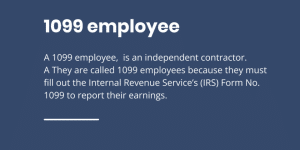Updated April 12, 2025
Is It Legal to Work 7 Days in a Row?
Not really. In California, the question of whether employees can legally work seven consecutive days is a nuanced one. Understanding the state’s labor laws is essential for both employees and employers to ensure compliance and protect workers’ rights. This article delves into the specifics of California’s regulations regarding work schedules, rest days, and the implications of working seven days straight.
Understanding California’s Day of Rest Law
California law mandates that employees are entitled to at least one day of rest per workweek. This fundamental right is outlined in the California Labor Code, specifically under sections 551 and 552. The law essentially states that:
- Employees should not be required to work more than six days in a week.
- Employers must provide at least one day off in a seven-day period.
This provision is designed to ensure that workers have time to recuperate and maintain their well-being, ultimately benefiting both the employees and their employers.
Exceptions to the Rule
While the general rule prohibits working seven consecutive days, there are notable exceptions:
Nature of Employment: Certain jobs, particularly in emergency services or sectors like healthcare, may necessitate longer work schedules due to the nature of the work.
Collective Bargaining Agreements: Employees covered by specific labor agreements may have different stipulations regarding work schedules, potentially allowing for more flexibility.
Part-Time Workers: Employees who work fewer than 30 hours per week or do not exceed six hours on any given day may not be subject to the same rest day requirements.
Understanding these exceptions is vital for both employees and employers to navigate scheduling effectively while remaining compliant with state laws.
The Implications of Working Seven Days Straight
If an employee does work seven days in a row, there are significant implications, particularly concerning overtime pay. Under California law, if a non-exempt employee works on the seventh consecutive day of a workweek, they are entitled to overtime pay. This includes:
- Time and a Half: For the first eight hours worked on that seventh day.
- Double Time: For any hours worked beyond eight hours on that seventh day.
Employers must be diligent in tracking hours worked to ensure compliance with these regulations, as failure to do so can lead to legal repercussions.
What Happens If Your Rights Are Violated?
If you suspect that your employer is violating your rights regarding rest days or overtime pay, it’s crucial to take action. Employees can file a complaint with the California Department of Industrial Relations. Depending on the situation, this could lead to:
- Compensation for unpaid wages.
- Possible penalties imposed on the employer for non-compliance.
Seeking Legal Assistance
Navigating labor laws can be complex, especially when it comes to understanding your rights and options. For employees facing potential violations, consulting with an experienced employment attorney can provide clarity and guidance. Legal professionals can help assess the situation, determine the best course of action, and advocate for your rights.
Best Practices for Employers
Employers must be proactive in managing work schedules to comply with California’s labor laws. Here are some best practices:
Define Workweeks Clearly: Employers should establish a consistent definition of a workweek (e.g., Sunday through Saturday) and communicate this to employees.
Monitor Hours Worked: Keeping accurate records of hours worked by employees can help prevent potential violations and ensure compliance with overtime regulations.
Educate Employees: Providing training and resources about employee rights regarding rest days and overtime can foster a more compliant workplace.
Consider Flexibility: When possible, offer flexible scheduling options that allow employees to have adequate time off while meeting business needs.
By implementing these practices, employers can create a positive work environment that respects employee rights and minimizes legal risks.
Conclusion
In summary, while California labor laws generally prohibit working seven consecutive days without a day of rest, there are exceptions based on the nature of the work and specific agreements. Understanding these regulations is crucial for both employees and employers. Should any rights be violated, employees have avenues for recourse, including legal action.
If you have questions regarding your rights or need assistance navigating labor laws, consider reaching out to a qualified employment attorney who can help you understand your options and advocate for your rights.
Don’t hesitate to reach out for a free confidential consultation about your rights. We’re here to help you navigate the legal process and fight for fair treatment in your workplace.
Consulting a Los Angeles employment attorney will provide you with the necessary guidance and support to navigate the legal process effectively. If you’ve been denied your rights as an employee by your employer, time is of the essence, please seek legal advice promptly to maximize your chances of a successful outcome.
Call Setyan Law at (213)-618-3655 for a consultation.






